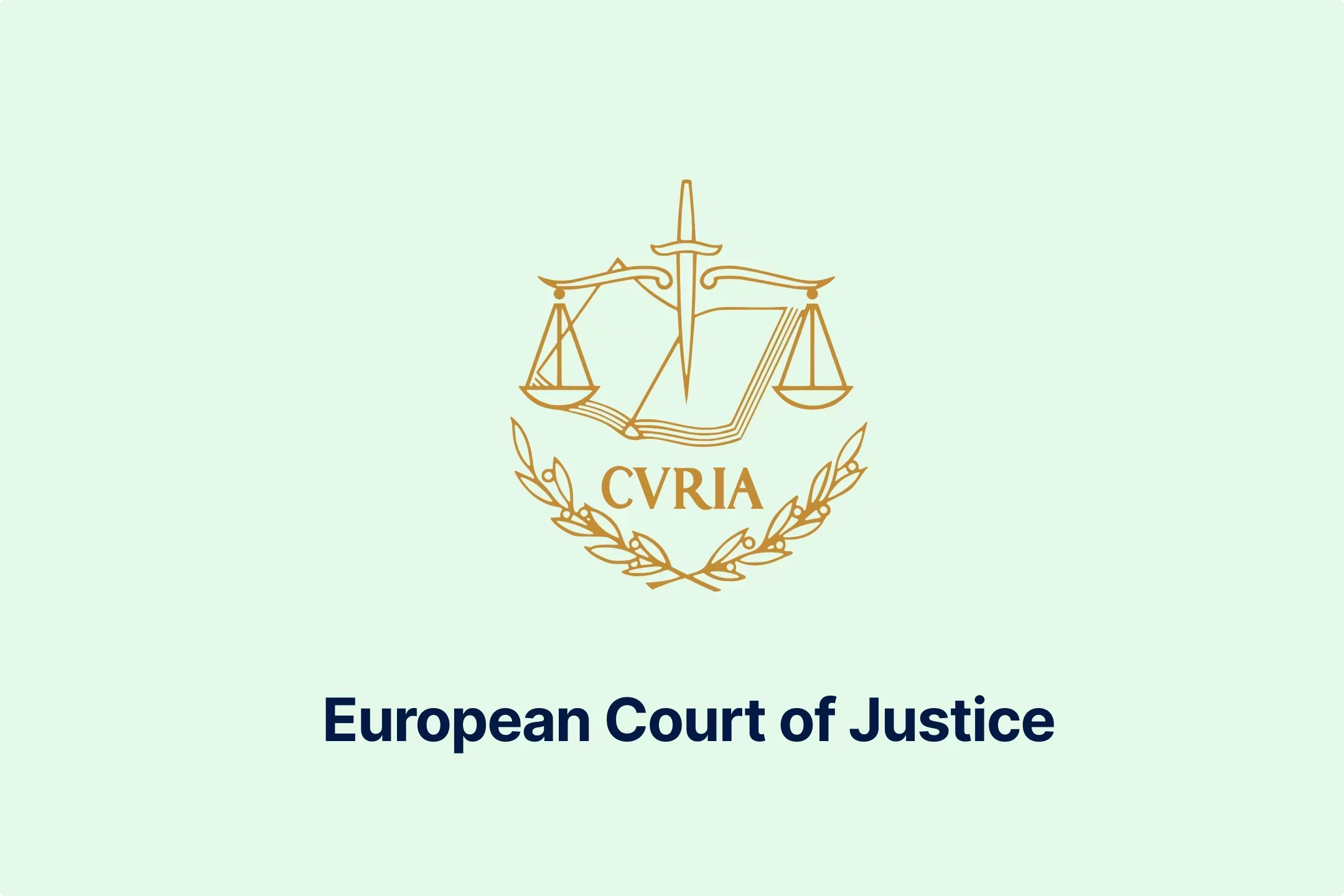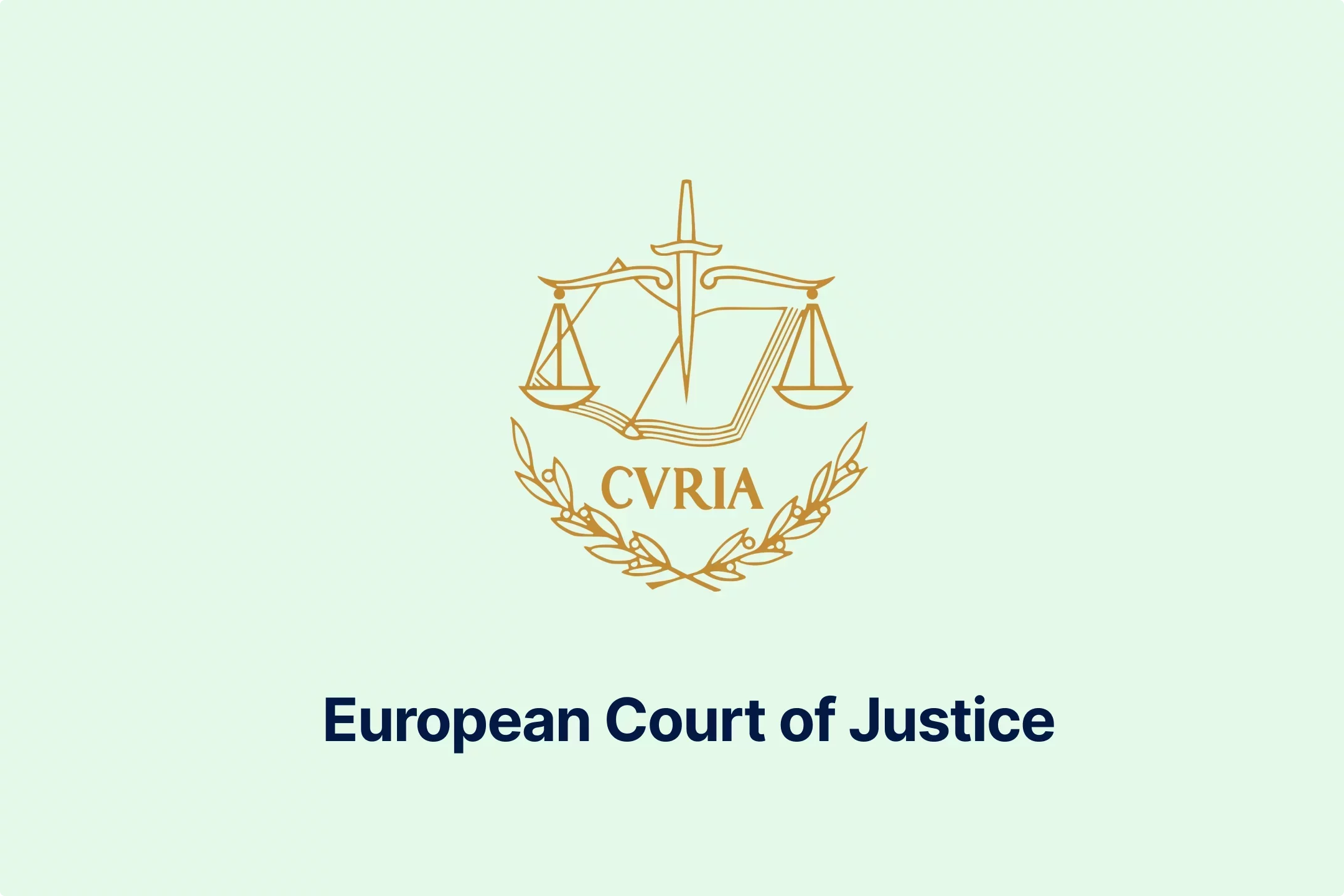ECJ Case C‑164/24 Ruling on VAT Deregistration: Fairness and Proportionality in EU Tax Law

🎧 Prefer to Listen?
Get the audio version of this article and stay informed without reading - perfect for multitasking or learning on the go.
Cityland, a Bulgarian construction company, faced tax and legal issues due to the Tax Authorities' findings in the tax audit. The Tax Authority determined that the company continuously violated VAT rules and regulations, ultimately removing the company from the VAT register.
However, the case was brought before the Administrative Court, which raised questions about whether Bulgarian VAT is compatible with the EU VAT Directive and whether exclusion from the VAT system due to formal legal infringements is allowed under EU law.
Background of the Case
During 2022, the Bulgarian Tax Authority conducted a tax audit of Cityland and determined that the company failed to pay declared and due VAT for five tax periods between 2013 and 2018. Additionally, the Tax Authority removed the company from the VAT register.
Cityland appealed against this decision before the Director of the Appeals and Tax and Social Security Practice Directorate (Director), claiming that the declared and unpaid VAT related to the invoices issued to another company, which were the subject of a legal proceeding relating to its failure to pay VAT as stated in the invoices.
Nevertheless, in December 2022, the Director confirmed the Tax Authority's decision, further stating that the due VAT was paid in October 2022 and that only an interest payment of BGN 6,264.022 remains to be paid.
Unwilling to accept the outcome of the appeal procedure, Cityland brought the case before the Administrative Court. However, the Administrative Court was uncertain whether Bulgarian laws allowing the company's removal from the VAT register are compatible with EU regulations.
The Administrative Court added that under national VAT rules, the Tax Authority is not obliged to thoroughly examine a taxable person's behaviour or intentions when determining whether there is a risk to tax revenue or potential tax fraud. Moreover, the rules allow Tax Authorities to exclude taxable persons from the VAT system simply based on three formal violations: late submission of tax return, late payment of VAT, or late invoice issuance.
If the Tax Authority finds even one of the three stated violations, it can remove taxable persons from the VAT register without considering their specific circumstances or overall conduct.
Due to doubts about the compatibility of these rules with EU VAT regulations, the Administrative Court paused the proceeding and referred four separate but interlinked questions to the ECJ.
Main Questions from Request For Ruling
The first question referred to the ECJ is whether a specific provision of Bulgarian VAT Law conflicts with Article 213(1) of the VAT Directive. Furthermore, if those provisions are incompatible, the second question is whether the relevant EU provisions have direct effect, allowing individuals to rely on them directly in national courts.
However, suppose the ECJ concludes that no conflict exists between national and EU law. In that case, the third question asks whether EU law allows exclusion from the AT system solely for formal infringements or violations without considering mitigation factors.
Finally, if the answer to the first question is negative, the Administrative Court asks whether simultaneous penalties, such as exclusion and interest, are permitted without previously assessing the individual taxable person's situation.
Applicable EU VAT Directive Article
Articles 2(1), 213(1), 214(1), 273, 362, 363, 369q, and 369r are the main articles from the EU VAT Directive that the ECJ considered to answer the questions raised by the Administrative Court.
In addition to listing types of transactions subject to VAT and imposing obligations on taxable persons to inform national Tax Authorities when they start, change, or stop their business activities, the article also requires EU countries to dedicate a unique VAT identification number to each taxable person.
Additionally, Article 273 allows EU countries to set additional rules for VAT fraud prevention and proper VAT collection, as long as those rules equally treat domestic and cross-border transactions and do not impose additional invoicing burdens.
Articles 362 and 363 state that EU countries should dedicate unique VAT numbers to non-EU businesses supplying services in the EU. Additionally, provisions allow EU countries to remove non-EU businesses from the VAT system if they repeatedly break the rules.
Similarly, Articles 369q and 369r refer to businesses involved in the distance sales of imported goods. These taxable persons also receive a unique VAT number for the scheme, which can only be used for those sales. They can also be removed from the VAT register if they continually fail to meet their obligations.
Bulgaria National VAT Rules
Article 106 of the Bulgarian VAT Law states that taxable persons can be removed from the VAT register if the taxable persons file for voluntary or mandatory deregistration, or by the Tax Authority due to mandatory reasons or under specific grounds set in Article 176.
Persistently failing to comply with VAT obligations is one of the main reasons the Tax Authority refuses to register taxable persons for VAT or remove them from the VAT register, as stated in Article 176. Supplementary Provision of the VAT Law further clarifies what the term “persistent” means, saying that persistent infringements are repeated violations of the same kind, committed within one year of a previous penalty decision becoming effective.
Importance of the Case for Taxable Persons
ECJ's ruling in the present case contributes to creating a more confident business and VAT environment, and protects taxable persons from unjustified measures imposed by EU countries' national laws. Additionally, the ruling underlines the necessity for national Tax Authorities to thoroughly evaluate each case individually, determine whether the taxable person's actions require and justify measures, such as removal from the VAT register.
Furthermore, the ruling reinforces the importance of proportionality, fairness, and legal certainty in VAT enforcement, ensuring that penalties under national legislations are not only practical and dissuasive but also fair and aligned with the principles of EU law.
Analysis of the Court Findings
Under the first question, the Administrative Court is essentially asking whether EU VAT rules, and the principle of legal certainty and proportionality, prevent national regulations from allowing the Tax Authority to remove taxable persons from VAT solely for failing to meet VAT obligations, without considering any specifics of the violations.
Although EU countries have some discretion in implementing measures to identify taxable persons for VAT purposes, that right is not unlimited. EU countries can refuse to assign VAT identification numbers only for legitimate reasons.
Regarding removing VAT identification numbers, the EU VAT Directive does not generally allow EU countries to remove taxable persons from VAT registers. However, there are exemptions to this general rule, such as for taxable persons operating under special VAT schemes. In those cases, removal is allowed if the taxable persons repeatedly fail to comply with the rules defined for these special schemes.
Since EU countries must adopt appropriate administrative and legislative measures to ensure the collection of due VAT and prevent fraud, they have the right to implement the required measures, including removing taxable persons from the VAT register. However, such measures must align with EU law and the principle of proportionality.
ECJ added that under the current EU regulations, EU countries can freely define penalties for repeated non-compliance with VAT rules. Still, in doing so, they must comply with EU law and its fundamental principles, particularly proportionality and fiscal neutrality.
To assess the proportionality of a penalty, legislators must consider factors such as the nature and gravity of the violation it addresses and the methodology for calculating the penalty. Moreover, penalties must be effective, dissuasive, and proportionate to the violation.
Considering everything preceding, the ECJ added that removing taxable persons from the VAT register without considering the specific nature of violations cannot be seen as a penalty that complies with principles of proportionality, fairness, and effectiveness.
Furthermore, since the VAT identification number is crucial in proving a taxable person's tax status, removing it from the VAT register could significantly affect their business activities. Moreover, removing taxable persons as a penalty for failing to meet VAT obligations may be considered harsh.
Additionally, removing taxable persons from the VAT register without fully investigating the nature and seriousness of violations is not in accordance with the principle of proportionality. A thorough and impartial investigation is necessary to ensure fairness and reliability in Tax Authority actions.
Finally, the ECJ underlined that under the principle of legal certainty, taxable persons' tax status, including rights and obligations with the Tax Authority, should not be uncertain or open to challenge indefinitely. From that perspective, a penalty that includes a removal from the VAT register but does not explicitly prohibit the persons from carrying out VAT-related activities can result in continuous uncertainty regarding tax status for the taxable persons and their consumers.
Courts Final Decision
In the end, the ECJ ruled that Article 213(1) and Article 273 of the EU VAT Directive, along with the principles of legal certainty and proportionality, prevent national legislation from allowing Tax Authorities to remove a taxable person from the VAT register solely for failing to comply with VAT obligations without first examining the specifics of the violations and the taxable person's conduct.
Conclusion
The ECJ's decision means Cityland was wrongfully removed from the VAT system due to national rules that conflicted with the EU VAT Directive. More specifically, the penalty, such as automatic VAT deregistration, is not proportionate to the violation, especially when the Tax Authority did not consider the specific nature of the violations and Cityland's overall conduct.
Therefore, Cityland was right to challenge the Tax Authorities' decisions. Moreover, the ECJ ruling in this case could contribute to protecting businesses from disproportionate penalties across the EU, emphasizing the importance of a balanced approach in VAT enforcement in relation to the efficiency of tax collection and the rights of taxable persons.
Source: Case C-164/24 - Cityland v Director of the Appeals and Tax and Social Security Practice Directorate of Veliko Tarnovo, Bulgaria, EU VAT Directive

Featured Insights

Burkina Faso FEC E-Invoicing Mandatory July 2026
🕝 February 24, 2026More News from Europe
Get real-time updates and developments from around the world, keeping you informed and prepared.
-e9lcpxl5nq.webp)




-zzrhegqsyq.webp)

-ulcnia30z1.webp)



-3rcczziozt.webp)

-rvskhoqpms.webp)




-a5mkrjbira.webp)

-ivkzc1pwr4.webp)




-hssrwb5osg.webp)



-c06xa1wopr.webp)









-webajrr4ny.webp)
-evibmwdwcn.webp)
-7acdre0hop.webp)

-lcgcyghaer.webp)
-ol6mdkdowg.webp)
-aqdwtmzhkd.webp)

-njgdvdxe2u.webp)



-i6rki3jbad.webp)
-hdwgtama05.webp)

-atbhy5fyxv.webp)






-zp2n6zixoa.webp)
-oa1ynbm4sn.webp)


-lltkno6txy.webp)



-do38odrqnq.webp)

-t409oldqzt.webp)

-hordopb6xh.webp)

-ooimnrbete.webp)

-lwb5qpsily.webp)


-eumafizrhm.webp)

-mtqp3va9gb.webp)

-3ewrn1yvfa.webp)
-591j35flz2.webp)

-huj3cam1de.webp)


-hafis0ii23.webp)

-qseaw5zmcy.webp)



-qzsah2ifqx.webp)


-69rzooghib.webp)
-wrvng98m0g.webp)


-psucycuxh2.webp)
-klyo8bn5lc.webp)




-6wv5h5eyyd.webp)
-tfgg78rbid.webp)
-a6jpv9ny8v.webp)
-qhdbapy0qr.webp)


-owvu7zoc13.webp)


-h28jrh1ukm.webp)

-wl9bl1rw3a.webp)

-2w76jtvtuk.webp)

-c0uvrmrq9j.webp)



-pofe7ucwz3.webp)



-5cc23ezxyf.webp)
-rrmabbekeb.webp)








-iyyeiabtaf.webp)
-c8rbjkcs01.webp)
-nilkffjhah.webp)

-hikakq55ae.webp)

-z1d60bldtg.webp)
-d1a0q6n7mp.webp)
-viip8nvoeh.webp)
-bvv1otliox.webp)



-de8hdb1bn3.webp)
-7xsxxoypnx.webp)

-cm0opezg73.webp)
-0tovsdupmi.webp)
-subxdamdj6.webp)


-gly6ablwnh.webp)
-gkduqhwbzh.webp)
-qpe1ld9vcj.webp)
-8noukwsmba.webp)
-aka29tuhkt.webp)


-fisvs27yrp.webp)


-mp0jakanyb.webp)

-aivzsuryuq.webp)



-o7f4ogsy06.webp)

-zjja92wdje.webp)
-hrbhdts8ry.webp)
-qtdkwpgkug.webp)


-cf8ccgah0p.webp)
-0em3cif5s6.webp)






-ptzesl0kij.webp)

-tfzv42pyms.webp)







-uodv7sfbih.webp)
-bbrdfmm9qf.webp)



-m2tl8crfqr.webp)




-1awbqjgpjs.webp)
-avbjsn1k1g.webp)


-0h8ohkx6s0.webp)



-wfmqhtc7i6.webp)
-7wljbof2zo.webp)

-eqt97uyekl.webp)
-wzw9mcf563.webp)

-z4oxr6i0zd.webp)



-l0zcrrzvhb.webp)
-fhtic1pwml.webp)

-iipdguuz9p.webp)
-nkhhwrnggm.webp)
-pltqwerr3w.webp)

-nn6mtfbneq.webp)

-tmnklelfku.webp)



-8z1msbdibu.webp)
-7g16lgggrv.webp)



-lxcwgtzitc.webp)
-9mc55kqwtx.webp)


-xla7j3cxwz.webp)
-jrdryw2eil.webp)






-t9qr49xs2u.webp)


-qjopq5jplv.webp)



-vune1zdqex.webp)

-qsozqjwle2.webp)
-rgjta7iwiv.webp)

-zb6bxxws47.webp)
-lyfjzw4okp.webp)

-ogpfmol5m1.png)


-czisebympl.png)

-zetvivc79v.png)
-ud7ylvkade.png)
-qizq6w2v5z.png)







-ihr6b4mpo1.webp)
-k1j4au0ph6.webp)
-swxxcatugi.webp)


-ig9tutqopw.webp)

-tauoa6ziym.webp)

-spr0wydvvg.webp)

-xfuognajem.webp)





-u2nv5luoqc.webp)








-opuxpan2iu.webp)




-kwttsfd8ow.webp)
-8u14qi10nj.webp)

-wjpr96aq5g.webp)

.png)

.png)


.png)


.png)



.png)
.png)
.png)
.png)
.png)

.png)
.png)




.png)
.png)




































































































































